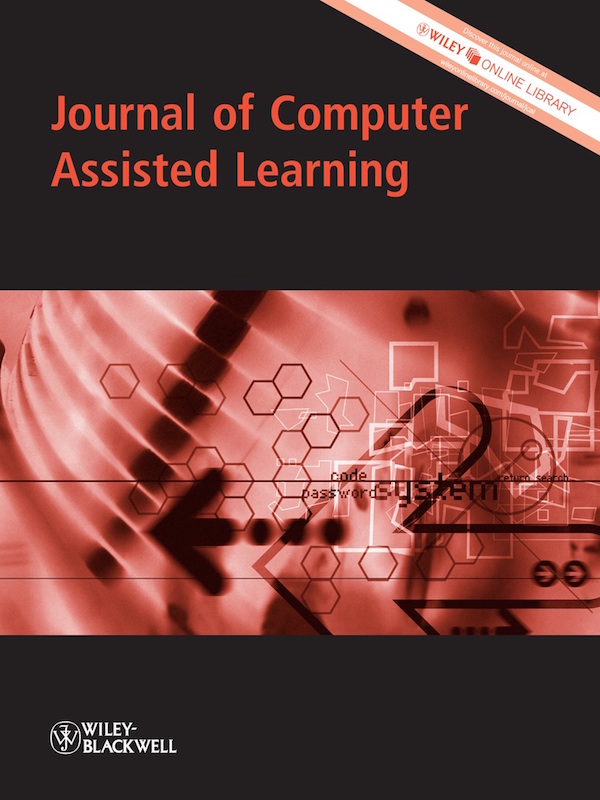An issue of Journal of Computer Assisted Learning has just been added to EdITLib.
The table of contents is available here: http://www.editlib.org/j/JCAL/v/31/n/3//
Contents
A mobile gamification learning system for improving the learning motivation and achievements
C‐H. Su & C‐H. Cheng
This paper aims to investigate how a gamified learning approach influences science learning, achievement and motivation, through a context-aware mobile learning environment, and explains the effects on motivation and student … More
Game immersion experience: its hierarchical structure and impact on game-based science learning
M.‐T. Cheng, H.‐C. She & L.A. Annetta
Many studies have shown the positive impact of serious educational games (SEGs) on learning outcomes. However, there still exists insufficient research that delves into the impact of immersive experience in … More
Mobile learning vs. traditional classroom lessons: a comparative study
D. Furió, M.‐C. Juan, I. Seguí & R. Vivó
Different methods can be used for learning, and they can be compared in several aspects, especially those related to learning outcomes. In this paper, we present a study in order … More
Orchestrating the XO computer with digital and conventional resources to teach mathematics
A. Díaz, M. Nussbaum & I. Varela
Recent research has suggested that simply providing each child with a computer does not lead to an improvement in learning. Given that dozens of countries across the world are purchasing … More
Predictors of digital competence in 7th grade: a multilevel analysis
O.E. Hatlevik, G. Ottestad & I. Throndsen
Since 2006, the ability to use information and communication technology (ICT) has been included as a key competence in the curriculum in Norway, and specific competence aims are developed for … More
Understanding the relationships between interest in online math games and academic performance
M. Zhang
Although the Internet is widely used by students in both formal and informal environments, little is known about how and where youth spend their time online. Using Internet search and … More

